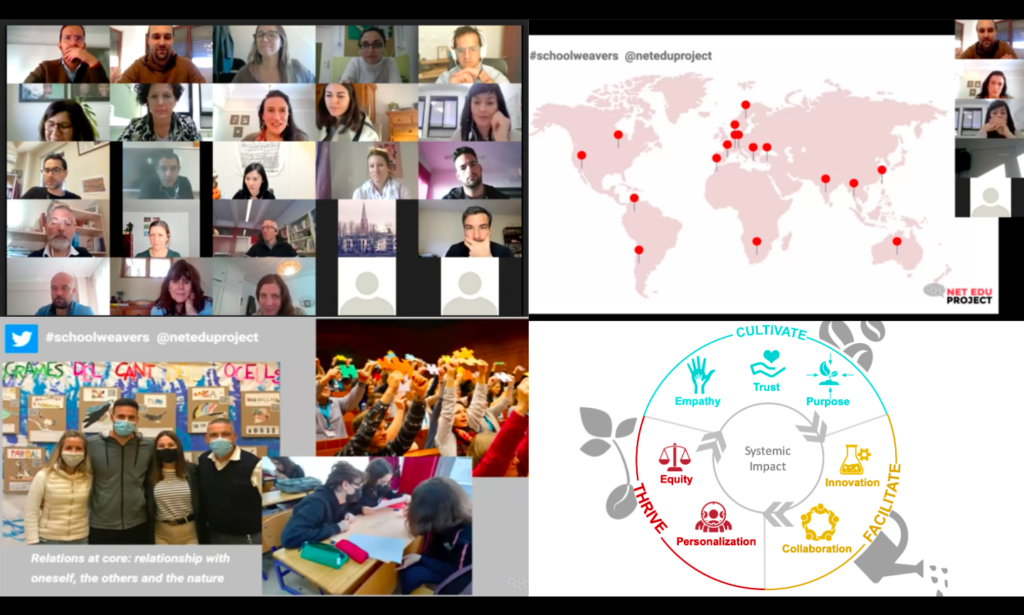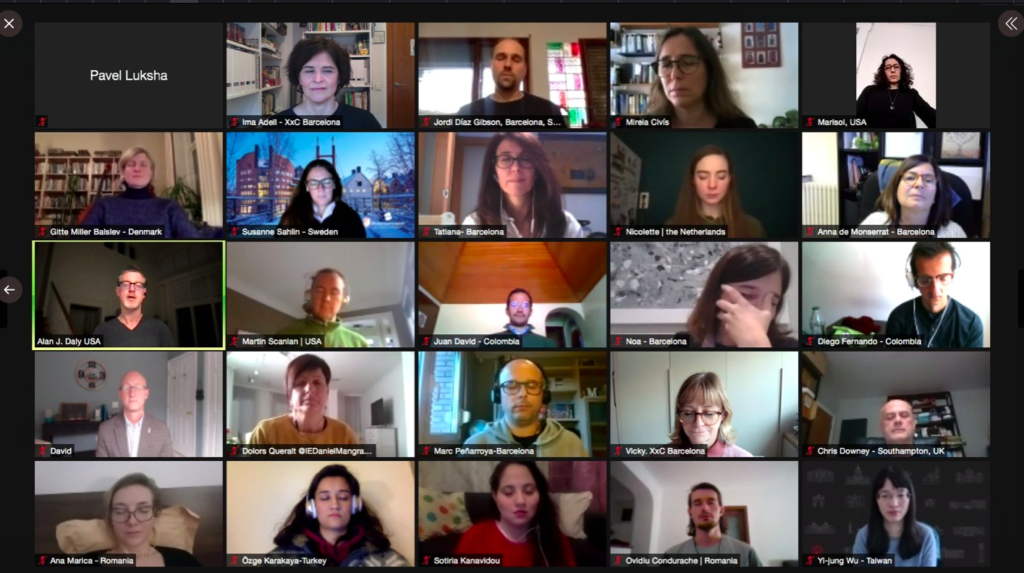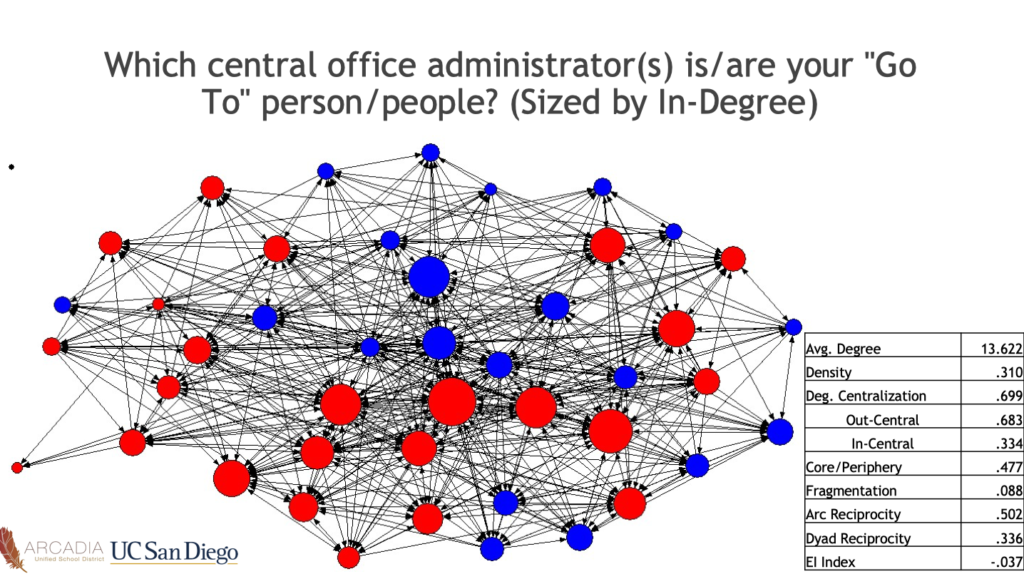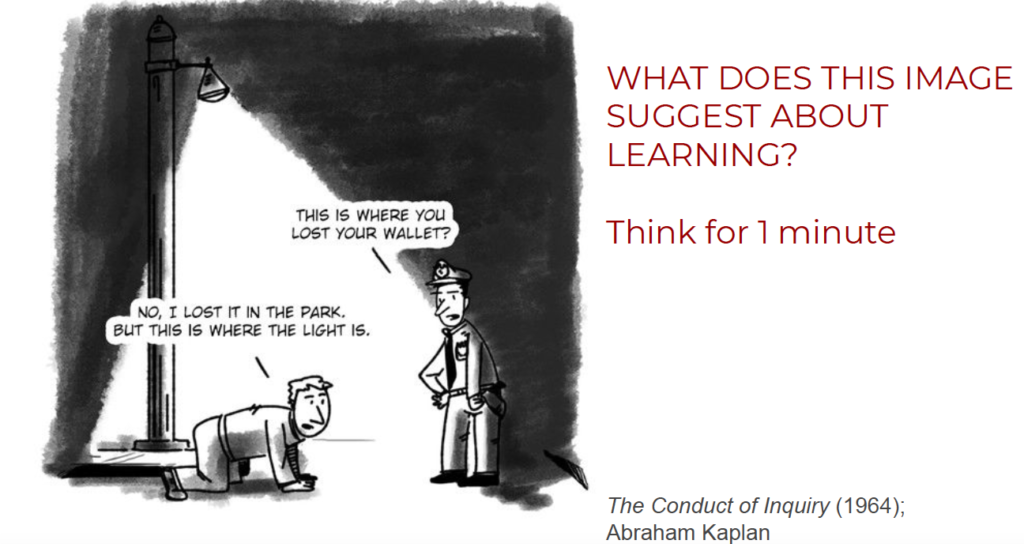Sense of belonging: an invisible essential condition for thriving school-based Learning Ecosystems
Last Friday December 3rd 2021 we celebrated our SchoolWeavers Workshop with the project Community of researchers, school leaders, teachers and district leaders from 17 countries around the world, spread over the five continents. These precious time together allowed us a deeper weaving, a deeper thinking and a deeper support between people froma schools, universities and educational organizations who join the SchoolWeavers. It is amazing how connected and aligned we are beyond our contexts and diverse realities, we speak the same language and we face similar issues, and most importantly, we share the purpose of reimagining our school communities to enhance learning and wellbeing opportunities for all. Thanks for your involvement in the session and to share your learnings, thoughts, ideas and expertise with all of us. The Workshop experience is an invaluable source of collective wisdom that allowed us to grow together and strengthen our community and purpose.

The ScholWeavers tool is an International project led by the NetEduProject team (Catalyzed by PSITIC, Blanquerna) and funded by the Jacobs Foundation and the Government of Spain. The intention behind the SchoolWeavers tool is to weave school communities around the globe to rethink learning and bound the transition from standardized educational systems to human and caring ecosystems that enhance personalized learning and equity. The tool claims to facilitate a process of cultivating and weaving trustful ecosystems in school communities around the world, strengthening and expanding meaningful human interconnections within and across school borders, focusing on seeding a relational environment that holds and inspires the best version of all its members.
During the session, we explored how we can better create opportunities for a sense of belonging in our lives, schools and communities. We started by sharing experiences where we felt that we belong, and discussed how these sense of belonging ideas resonated with our dayly work. Then, we shared the school and university experiences to support the engagement of all school actors (students, families, teachers, leaders, staff and community collaborators). And finaly we shared how we are doing all this through the ScholWeavers tool.
A key assumption of the SchoolWeavers model is that a sense of belonging is essential for us to feel connected and involved in our communities. Thus, a sense of belonging is a fundamental human need that is crucial in the process of weaving learning ecosystems. Here we can grasp a few ideas shared around the science of sense of belonging.
- Social relationships are important because they provide opportunities to belong and grow together.
- Sense of belonging makes people feel distinctive and special, so a lack of it is associated with a host of negative psychological outcomes.
- Sense of belonging increases positive interaction between individuals and is related to feeling trust and passion.
- It also fosters individual and community resilience.
- A good organizational culture can play an outsize role in fostering belonging via beliefs and values.
- Sense of belonging in students drive positive peer and teacher relationships and helps to intervene against bullying.
- Finally, sense of belonging in students is also related to academic achievement, expectations and aspirations. It also adds more value to learning experiences increasing self efficacy.
Therefore, we should create opportunities for people to feel and experience a sense of belonging to our communities as an invisible but powerful condition in the work we are all doing in our schools and universities. Some of the ideas shared by team members were: ‘if everybody knows that they will be heard, this creates a powerful sense of belonging’; ‘feeling valued and that we belong is essentia on building trust’; ‘we should shift thinking from -I do what I do and I belong- to -I belong and then I do what I do-’; ‘being yourself is a key ingredient to be part of the community, and allows you to LEARN and participate in a wider range of community experiences’; ‘having a supportive and encouraging environment cultivates our sense of belonging’.
As a beautiful gift, our colleagues and leaders from Daniel Mangrané School (Catalonia, Spain) and Montemorel School (Chia, Colombia) presented their ongoing experience on strategies to involve the school community in the SchoolWeavers project. Mainly, these experiences and strategies focus on creating spaces to engage with all actors in the community, exchange ideas and actively listen them. Daniel Mangrané has linked the Tool model (Showed in the images above) to their ongoing school pilars: Cultivate dimension is related to cohesion within the school community in a project called “junt@smilor” that involves participation in the daily life of the school. Facilitate dimension involves immersing in innovative projects through the process called #makingmagrané. Thrive dimension focus on #strategiclearning, a learning comprehension where students not only get good marks but focus on individuals. With this in mind, they are mobilizing their community with teachers and students involving also families. It is highly interesting the way students are actively involving their families in the project.
Montemorel School main strategies used in the initial phase are to generate expectations and prepare communities around the different dimensions the tool proposed in its model. They work in each dimension progressively starting from empathy and finishing with equity. Some of the strategies used are: To share videos in families-teachers meetings; To develop human flourishing workshops; To explain benefits and goals the tool will help to achieve through posts on social media; To organize Individual meetings with community actors (parents, administrators, students) to talk about dimensions.
Some final ideas from our discussion
- Sense of belonging is essential in the development and involvement in the SchoolWeavers project
- We need holistic and interconnected strategies to reach all school actors and weave a collective sense of belonging in our community.
- It is important to explain to schools and teachers that the tool is not to evaluate their work but to improve learning.
- It is important to open spaces to share better with families what we are doing and the sense of education. Sometimes they don’t understand why schools are proceeding in some ways at the same time that we do not take advantage of the potential of the families being engaged with the school project and feeling that they belong.
- We need to understand that many changes are needed to weave better ecosystems, so as leaders we have to use diverse and multi dimensional strategies.
- Researchers can better support school communities in the SchoolWeavers by being part of their team and purpose, being part and belonging to the school communities.
- Although some circumstances are similar between contexts others are different and need differentiated and contextualized approaches.
Schools, universities and educational organizations who join the School Weavers tool project are co-creating learning ecosystems around the globe, and at the same time, are starting to become a global learning ecosystem. We are part of something greater, we belong to a wider movement where energies and efforts support learners to take care of themselves, society and planet, and we are not alone, there are other communities and schools sharing this values and mooving toward these learning goals. We are the type of change we want to see in our schools, experiencing a shift in our collective mindset beyond achievement, deeply taking into account relational and collaborative processes to strengthen human relationships, and holistacaly support each other in our learning and living journey.



